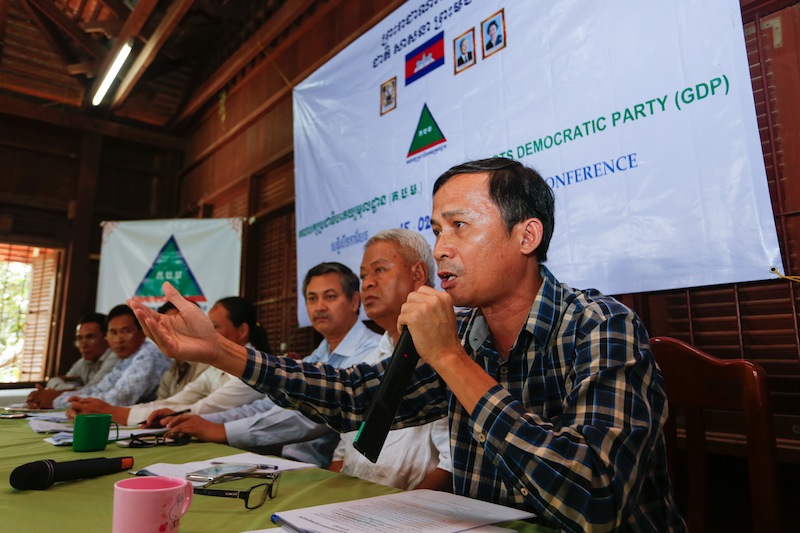If just seven of the 151 ballots cast for the Grassroots Democracy Party in Taing Yab commune had gone for the CNRP, another commune would have slid into the main opposition’s win column. Instead, the ruling CPP won the commune by six votes.
The commune in Takeo province’s Prey Kabbas district is one of 130 won by the CPP in Sunday’s elections in which, had all the ballots cast for minority political parties gone to the CNRP, its candidates would have been elected chief, according to preliminary results from the National Election Committee.

With the CNRP estimating victory in between 482 and 486 communes of 1,646 nationwide, those additional wins would have increased their totals by about 27 percent—about half the 1,158 communes the CPP estimates it won.
The “spoiler effect,” in which votes are split among various opposition parties, hurting the CNRP’s chances of beating the CPP, “did cost some votes in some communes, but the overall votes wouldn’t have changed,” said Ou Virak, head of the Future Forum think tank.
Mr. Virak said it was likely that votes for minority opposition parties would have otherwise gone to the CNRP, but it was no guarantee.
“Most of the votes [for third parties] would come from the opposition [CNRP] party,” he said, though some of the smaller parties might have pulled votes from the CPP.
CNRP spokesman Yim Sovann said votes going to minority parties only had a “small effect” and it was unclear whether vote splitting hurt the CNRP or the CPP more.
Still, Mr. Sovann said, third parties should think about their impact.
“People who create the parties should consider whether we lose or gain when we do not join together with the democracy movement, with the CNRP,” he said. The smaller parties should also consider “whether they have implemented any policy or just split the vote.”
“If they want to have quick reform, we should join forces together,” Mr. Sovann said, adding that the CNRP would welcome those who wished to discuss mergers.
But third party leaders contacted on Tuesday said they had no plans to join forces, despite third parties winning only about 3 percent of total votes on Sunday compared to 51 percent for the CPP and 46 percent for the CNRP, according to early results released by the parties. (Minority parties’ slice of the electoral pie has shrunk from nearly 7 percent in the 2013 national election and about 7.5 percent in the 2012 local elections.)
Yang Saing Koma, co-founder of the Grassroots Democracy Party, said the party’s brand of “bottom-up democracy” would not fit well with the CNRP’s “top-down” structure, making it impossible for the parties to consolidate.
“If we merge with them we would lose our identity,” Mr. Saing Koma said.
He said third parties should not be held responsible for the CNRP’s loses.
“There’s a time when each political party has to look at themselves,” he said. “The vote doesn’t belong to the CNRP.”
Khem Veasna, president of the League for Democracy Party (LDP) and a former Sam Rainsy Party parliamentarian, said his supporters would think he was “crazy” if he decided to join the CNRP.
“Everything about LDP is different from others,” he said, claiming that other parties were involved in politics out of self-interest rather than civic duty. “We want to use LDP to win elections by ourselves because we have another ideology.”
Mam Sonando, Beehive Social Democratic Party president, acknowledged the CNRP’s gains in Sunday’s elections compared to previous races, but said voters would change their minds about the party if its leaders did not keep their campaign promises.
“It is improved but people will reconsider,” he said.
His party had no intention to join either of the major parties, he added.
Mr. Sovann, the CNRP spokesman, said that if third parties wanted reform, they should join forces with the main opposition party.
“It is time for those parties to think and reconsider,” he said. “If they want to have change, they should come and join with the CNRP.”
(Additional reporting by Michael Dickison)



